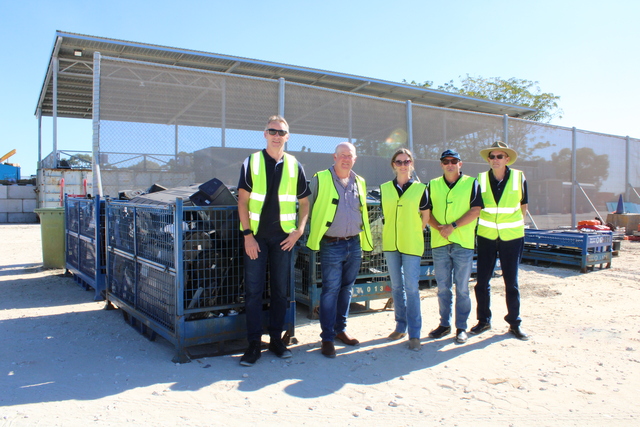Aiming to set new standards in wastewater disposal, Mackay has allocated $5.3 million in its 2003/04 budget for the Mackay Water Resource Project. With the project removing the need for an ocean outfall, Council is currently seeking both Commonwealth and State Government funding support.
“This is a great opportunity for a partnership between the three spheres of Government to deliver good economic and environmental returns,” Mayor Julie Boyd said.
Preliminary discussions with the Great Barrier Reef Marine Park Authority have been supportive of the initiative given its significant environmental benefits.
“Part of the Mackay Water Resource Project will include the reticulation of treated effluent to irrigate sugar cane in the Chelona-Homebush areas, where groundwater extraction is limited due to saltwater intrusion,” Councillor Boyd said. “This proposal will be the largest regional re-use scheme of its type in Australia and has significant environmental benefits for the region.
“The estimated cost of Stage One is $70 million. When completed it will meet the City’s requirements to 2020.”
A feasibility study for the effluent re-use component found the project to be technically feasible and environmentally sustainable. While an Environmental Impact Statement is not essential under current legislation, Council is undertaking the study as part of its commitment to the environment.
“With Council’s main wastewater treatment plant nearing capacity, coupled with old technology and odour issues owing to its current City location, we needed to look at other options,” said Jason Devitt, Manager Mackay Water.
The project will see the City treatment plant decommissioned and a new high tech plant built 12 kilometres to the south, away from any township. Council already has a small plant at this site.
As well as providing much needed irrigation for sugar cane growers, phosphorous and other nutrients in the wastewater will reduce the need for chemical fertilisers that can also be washed into creeks and rivers and out to the Great Barrier Reef. Farm management plans will ensure runoff from the irrigation is minimal. Ninety per cent of wastewater will be sold to farmers. In periods when irrigation is not required it will be retained in large storage ponds.
Some 3,200 hectares of land will be supplied with irrigation. Mackay produces around two per cent of effluent in Queensland, and when the new plant comes online in June 2006 it will increase water reuse in the State by 18 per cent.
For further information contact Jason Devitt, telephone (07) 4968 4444.







